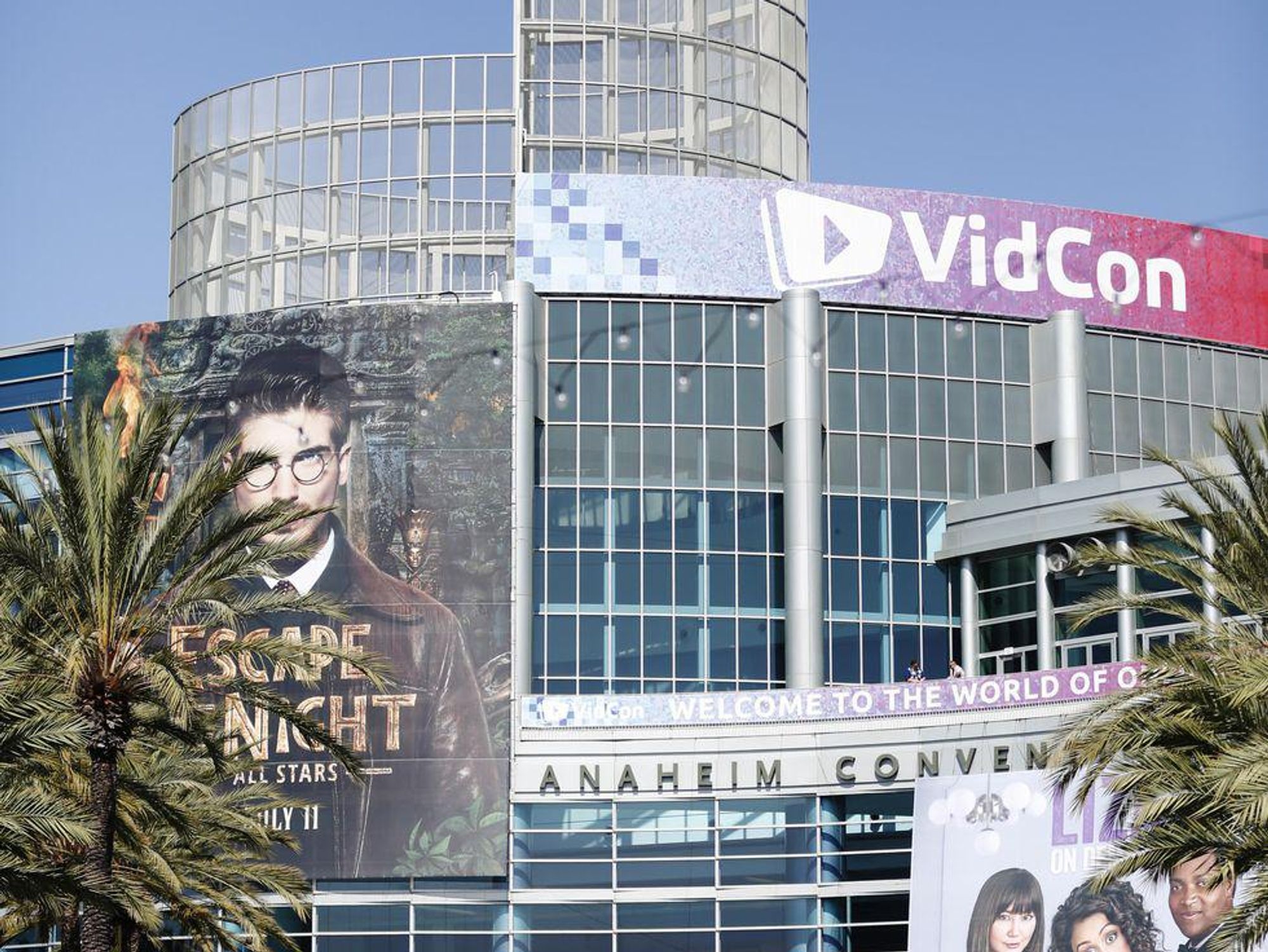VidCon 2021 Cancelled Amid Rising COVID Cases
Favot is an award-winning journalist and adjunct instructor at USC's Annenberg School for Communication and Journalism. She previously was an investigative and data reporter at national education news site The 74 and local news site LA School Report. She's also worked at the Los Angeles Daily News. She was a Livingston Award finalist in 2011 and holds a Master's degree in journalism from Boston University and BA from the University of Windsor in Ontario, Canada.

VidCon 2021 has been canceled because of heightened concerns over COVID-19 and the Delta variant and California's health and safety mandates.
The influencer industry's biggest event of the year had been scheduled for Oct. 22-24 at the Anaheim Convention Center. It would have marked TikTok's first year as the top sponsor, taking over the long-held title from YouTube.
"We were so confident that we'd be able to put on the VidCon you know and love this October and could not wait to reconnect with all of IRL," VidCon General Manager Jim Louderback said in a statement. "Unfortunately, due to the recent increases in COVID-19 cases and evolving health and safety mandates, we have come to the difficult but right decision to cancel VidCon this October. We just can't risk the health and safety of our attendees, creators, speakers, sponsors and staff — and we want to ensure we provide EVERYONE with the very best VidCon experience."
California's Department of Public Health announced Wednesday that people attending indoor events with 1,000 or more people must provide proof of vaccination or a negative COVID-19 test from within the prior 72 hours, starting Sept. 20.
The convention, which would have been in its 11th year, has been rescheduled for June 22-25, 2022 in Anaheim.
In 2019, VidCon's events attracted about 75,000 people and 120 brand exhibitors.
Anaheim spokesperson Lauren Gold said that convention brought an estimated $47 million into the city, including on hotel stays, shopping and dining or even visits to Disneyland and California Adventure.
The city expected more than 30,000 convention goers to attend this year.
"We are disappointed VidCon 2021 isn't going forward but understand their decision," Gold said in a statement. "VidCon brings excitement, energy, creativity and fun to our city. But, more than that, events such as these are critical for Anaheim's economic recovery. We look forward to hosting VidCon 2022 in June."
VidCon is an event that brings together online influencers and the viewers who engage with their content. It gives creators the opportunity to mingle with executives in entertainment and technology and to negotiate brand deals.
Since its last in-person conference, influencers have only become a hotter commodity. At least 10 social media platforms including Snap, Facebook, TikTok and YouTube have built funds to lure in creators as they battle it out for talent. TikTok's fund is set to grow to about $1 billion.
Typically taking place in the summer, the event in 2020 had been scheduled for June, but was canceled three months earlier at the onset of the coronavirus pandemic.
With TikTok taking over from YouTube as a brand sponsor, some said that it represented a symbolic shift in the social media landscape demonstrating TikTok's rise in popularity among content creators.
In response to questions from Buzzfeed as to whether TikTok will remain a title sponsor in 2022, VidCon told the news outlet it will "be sure to share sponsorship and programming updates in the near future."Correction: An earlier version misstated the amount of attendees expected.
- VidCon 2021 Returns In-Person As Events Slowly Come Online ... ›
- VidCon Panel Proves Investors Are "Betting Big" on Creators - dot.LA ›
Favot is an award-winning journalist and adjunct instructor at USC's Annenberg School for Communication and Journalism. She previously was an investigative and data reporter at national education news site The 74 and local news site LA School Report. She's also worked at the Los Angeles Daily News. She was a Livingston Award finalist in 2011 and holds a Master's degree in journalism from Boston University and BA from the University of Windsor in Ontario, Canada.




 Image Source: Skyryse
Image Source: Skyryse
 Image Source: Northwood Space
Image Source: Northwood Space